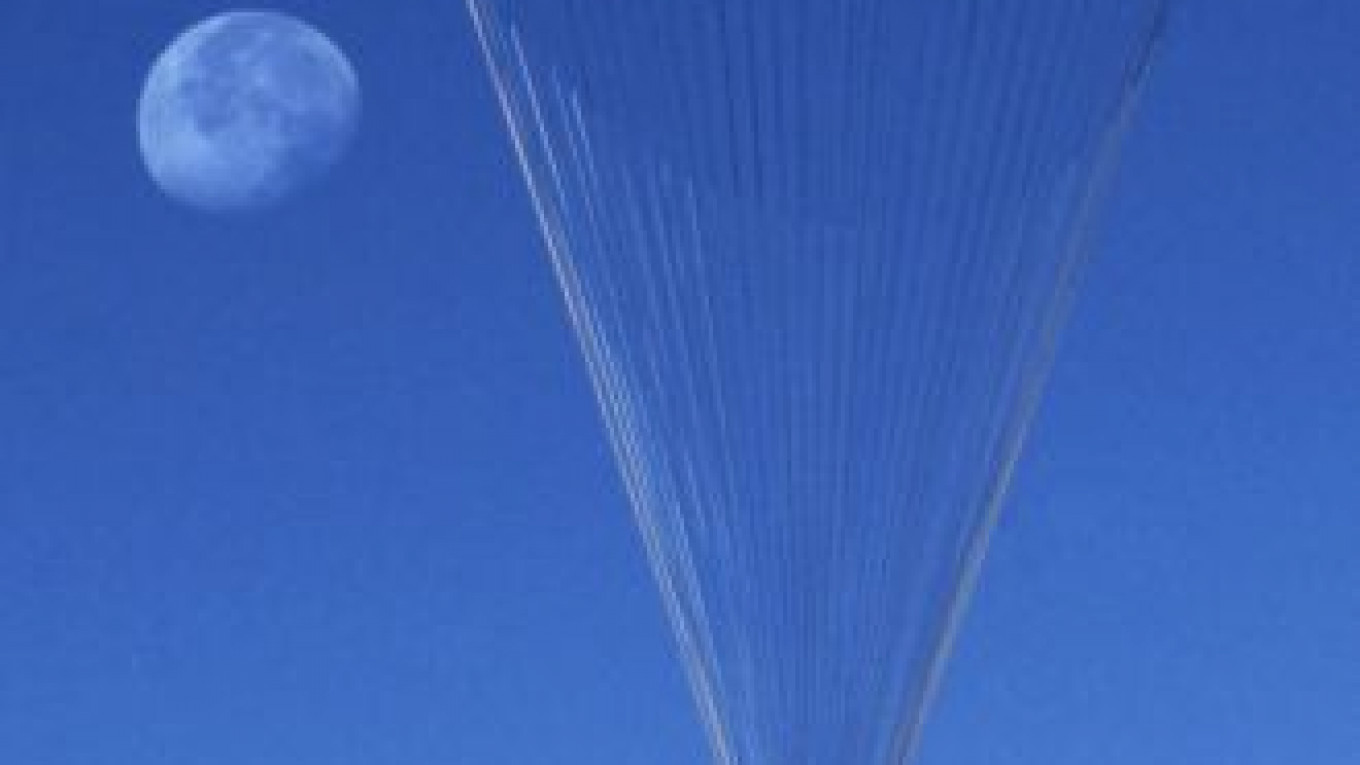MOSCOW — A Soyuz capsule carrying three returning astronauts from the International Space Station touched down safely Friday in the central steppes of Kazakhstan, but not without rattling nerves after a breakdown in communications.
Cosmonauts Andrei Borisenko and Alexander Samokutyayev and NASA astronaut Ron Garan landed some 150 kilometers southeast of the city of Zhezkazgan at 10 a.m. local time after 164 days in space.
Repeated calls to the Soyuz TMA-21 capsule from Mission Control in Korolyov, outside Moscow, went unanswered for several minutes, well after the craft had de-orbited.
Communication was eventually established between the crew and an Antonov fixed-winged aircraft circling the landing site.
The landing was smooth in the area planned seconds before the expected arrival time.
Samokutyayev, who occupied the central seat in the capsule, was the first to be pulled out and hoisted into a medical chair. He looked visibly drained but in good spirits, as a nurse mopped his brow and checked his blood pressure.
A beaming Garan was hoisted out a few minutes later, shortly followed by Borisenko.
The three men were then carried in their reclining seats into an inflatable medical tent positioned some 30 meters away, where they were to change out of their entry suits into more comfortable clothes ahead of their return home.
Helicopters will first take the three men to the Kazakh city of Karaganda, after which Samokutyayev and Borisenko will fly on to Chkalovsky Airport, near Moscow, while Garan will leave directly for the United States with a NASA support crew.
Mission Control could not secure direct audio communication in the period between the Soyuz capsule de-orbiting and landing. A mission control official repeatedly called out their call-sign, "Tarkhany," and appealed for a response, but received no answer.
Still, a beeping signal indicated that the module separation process had been completed. Minutes before landing, an aircraft awaiting the Soyuz's arrival reported seeing the parachute deploy, and shortly afterward a flying Antonov aircraft command center received the message that the crew was well.
Cosmonaut Sergei Volkov, NASA's Michael Fossum, and Satoshi Furukawa of Japan's JAXA space agency remain aboard the space station and are due to return to Earth on Nov. 22.
There will be some taut nerves in the run-up to that return, which the Federal Space Agency announced Friday should be preceded by a manned Soyuz launch from Baikonur on Nov. 14. Earlier this week, the agency announced that the launch was to take place on Nov. 12.
That launch had to be postponed from October amid concerns over a failed supply mission last month. Another delay would almost certainly mean that the space station would have to be left unmanned. Astronauts have been living aboard the station, without interruption, for almost 11 years.
A Message from The Moscow Times:
Dear readers,
We are facing unprecedented challenges. Russia's Prosecutor General's Office has designated The Moscow Times as an "undesirable" organization, criminalizing our work and putting our staff at risk of prosecution. This follows our earlier unjust labeling as a "foreign agent."
These actions are direct attempts to silence independent journalism in Russia. The authorities claim our work "discredits the decisions of the Russian leadership." We see things differently: we strive to provide accurate, unbiased reporting on Russia.
We, the journalists of The Moscow Times, refuse to be silenced. But to continue our work, we need your help.
Your support, no matter how small, makes a world of difference. If you can, please support us monthly starting from just $2. It's quick to set up, and every contribution makes a significant impact.
By supporting The Moscow Times, you're defending open, independent journalism in the face of repression. Thank you for standing with us.
Remind me later.






